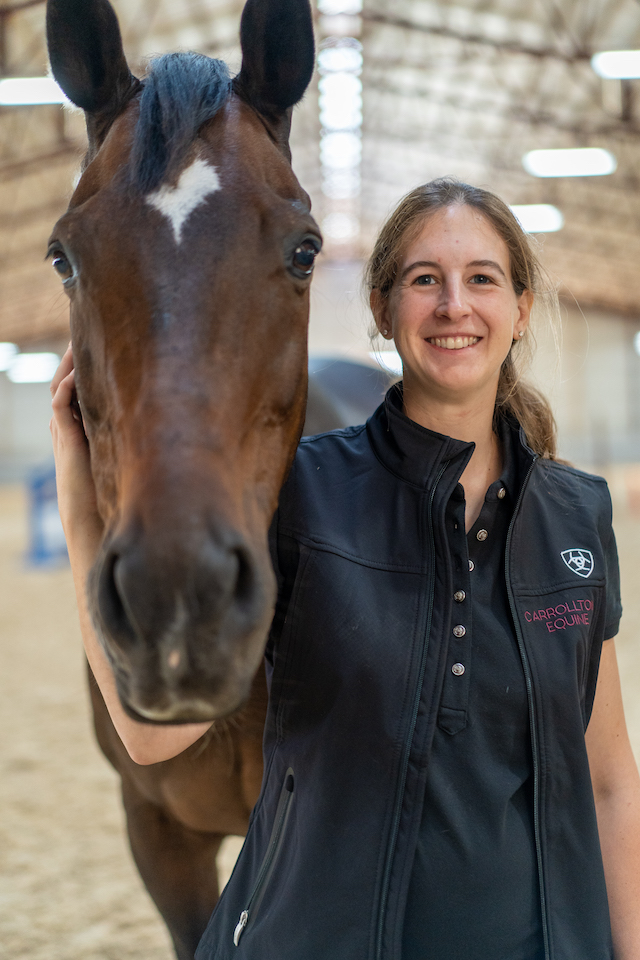Equine Wellness 101: A Comprehensive Guide to Routine Care and Preventative Measures for Your Horse
Optimize your horse's health with our guide to equine wellness. From balanced diets to vaccinations, discover essential care tips for a vibrant and happy life together. Explore preventative measures and resources for informed decisions. Start a healthier journey for your horse now!
It is a common for people to adoringly look at their pets and wonder if they are giving them the best they can. This often brings up the question of food with so many brands and types available on the shelf to choose. Many whom come through out doors will ask if the food they are feeding their animal is a “good one” or if they should switch foods. As a general rule, most dog foods are well balanced and pretty safe to give. There are so many varieties because depending on your individual animal, you may need a specific make up.
What is a “Balanced Diet”?
A balanced diet is one that provides your animal with all the essential vitamins, minerals, and nutrients that it needs to maintain normal bodily functions. This will vary by the individual animal based on activity level, metabolism, and life stage.
How do I know what to buy at the store?
Just as everyone’s daily routine will vary a little bit day to day the exact times/frequencies will vary per horse, but as a rule of thumb:
- Vaccinations- Performed yearly for most vaccines with 6-month interval for some risk-based vaccinations
- Fecal Egg Counts- Recommended minimum yearly with some horses requiring quarterly counts
- Deworming- Often recommended now to be based on Fecal Egg Counts, but still recommended that all Equids be dewormed with a boticide after the first frost in the fall
- Dental Examination/float- Minimum recommendation of yearly to keep points down and dentition even
- Foot Trimming- Recommended minimum every 8 weeks
What am I trying to prevent with routine care?
- Illness/Sickness- Vaccines keep animals protected against diseases they are exposed to on a regular basis.
- Clinical Parasitism- Regular Egg Counts keep your horse from being overrun with parasites which can lead to weight loss, poor haircoat, anemia, and susceptibility to other diseases.
- Poor Dentition- Dental floats keep you horse chewing smoothly and effectively breaking down their feed so that it can be fully digested maintaining a healthy body condition.
- Lameness- Regular hoof care maintains proper blood flow not only to the hoof itself, but the entire leg keeping your horse comfortably walking/competing for as many years as possible.
Ways to incorporate routine care at your facility:
A very good habit to get into to keep routine care at the forefront of your mind is to regularly check for signs that you animal may some regular maintenance:
- Do you riding plans include taking your horse anywhere that they may be exposed to other animals this year? How much wildlife does my horse share their pasture with?
- Is my horse’s stool a normal consistency?
- Does my horse itch its tail at all?
- Have I seen bot eggs when grooming my horse this year?
- Is my horse gaining weight, losing weight, or maintaining weight?
- How long does it take my horse to eat its grain?
- Does my horse every spit out or drop any food?
- When I ride does my horse dislike the bit?
- If you horse wears shoes are the nails tight?
- Any cracks or chips in the feet?
- Does my horse place its food/leg comfortably and with confidence every step?
When to Call the Veterinarian:
If you are regularly looking at/working with your horse and you notice any change in condition/behavior that is a good time to give us a call. The list of questions above are also a good place to start with evaluating your horse to see if they may need an appointment.
Our Commitment to You
At Carrollton Equine, we believe in providing a balanced, whole horse approach trying to prevent as many problems as possible or at least catch them while they are still inexpensive to treat. Preventative care is always cheaper than fixing a problem and our goal is for you to never be set back by a large problem.
Resources for Pet Owners
For additional discussions on routine care for horses I encourage you to check out:
- https://aaep.org/guidelines/vaccination-guidelines
- https://aaep.org/horsehealth/importance-maintaining-health-your-horses-mouth
- https://aaep.org/issue/equine-foot
- https://aaep.org/sites/default/files/Guidelines/AAEPParasiteControlGuidelines_0.pdf
In Conclusion
Routine care, or preventative care, can be a powerful tool in your belt to keep your horse healthy and happy as you journey through life together. It is always more effective, safer, and cheaper to keep a problem from happening as opposed to fix a problem after it has already occurred.

About The Author
Nicole Kelleher
DVM, CVA, VSMT | Owner & Equine Veterinarian
Nicole graduated from The Ohio State University College of Veterinary Medicine in 2014. Since then she has continued to further her education by becoming a Certified Veterinary Acupuncturist graduating from the Chi Institute in 2017. She then attended the Healing Oasis school to graduate with her degree in Veterinary Spinal Manipulative Therapy (VSMT) in 2021. Dr. Kelleher regularly sees clients utilizing Shenanigans Stables to perform lameness evaluations and treat patients with both acupuncture and VSMT allowing for an integrative approach to the equine athlete.
